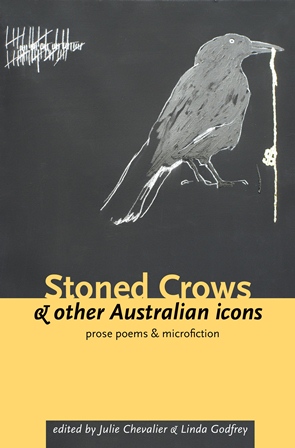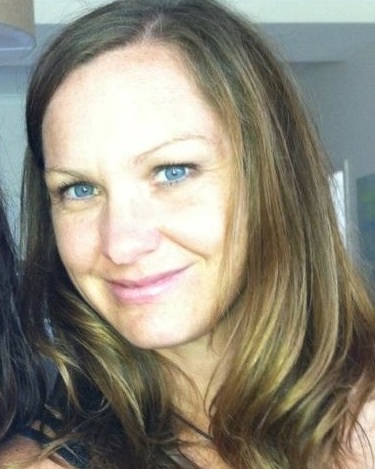1. What inspired you to write the prose poem/microfiction which is published in Stoned Crows & other Australian icons?
Sport is such a large part of the Australian psyche and the trend in recent years for adults to personalise sport, and the resulting emergence of the ‘Weekend Warrior’, is fascinating to me. The burgeoning social sports scene provides a field day for writers interested in the complex, and often contradictory, nature of competition and camaraderie amongst people. I often smile to myself at the antics amongst the sporting groups I move in; myself included.
2. Tell us about your process. (Do you start sparse and widen out, or do you write down every possible association and cut back? Do you research the subject matter you are writing about? Is it pure intuition?) Take us through an example if you want.
I find the beauty of flash fiction to be that its inspiration comes in an instant: an image, feeling, situation, and comment rolled into one lightning bolt. I feel the immediate need to write it down. If I delay, the story is lost. I know instantly how it will begin and end, and how I will navigate from one to the other. It is usually as a result of a personal response to something I have seen, and the image speaks to me about what it is to be human.
Longer pieces require more wrestling for me, as plot demands increase and I am no longer describing one image, but many in a series. That’s when I have to research, examine, and reexamine. I find the work increases exponentially with the length of the story, and I have to continually stop and re-imagine and plan. With short stories, most of the thinking is usually done before I begin.
3. What advice do you have for other writers ? about the first or last line? About how to choose the title? Do you follow any rules?
I recommend relaxing and letting your intuition take over. If you’re not concerned about getting it ‘right’ in the first instance, you free your imagination and hopefully it will do all of the work. If you do not give yourself permission to make mistakes, it is near impossible to begin. Once you have words on a page, they can be improved upon.
In my experience, the first line should almost write itself. If it doesn’t, maybe you are beginning in the wrong place. What is the image you have in your mind? The reader can’t see it, so you must explain it to them: start there. It doesn’t need to be a complicated sentence. Simple is just fine, but you do need to be believe in it. The last line should signal that you are finished sharing the story, but the story itself will continue. If you can achieve this, your reader will keep thinking on it after they have put down the piece of writing.
Similar to writing the first line, I tend to name my writing via instinct. I write the title in the very early stages, when the story is more idea than substance. I suppose it depends on whether you find it easier to say: ‘This is what my story is going to be’, rather than: ‘This is what I have just written’. The title is a great way to communicate a layered explanation of what treasures you have embedded in the story, and it is a shame when that opportunity is wasted.
4. Who or what inspires your writing?
People inspire my writing; the nature of actions and reactions, coupled with intentions and the resulting consequences. Contemplating humans and their interaction with internal and external things is a fascinating, unsolvable puzzle. It keeps me enthralled for hours. If I had to define further, I would say that I am most interested in examining how people respond to sadness and difficulty. Story – on and off the page- happens for me when the water is muddy, and pressurized situations test the character of individuals.
5. Tell us what you do if you haven’t written anything in a while and you want to get started writing again? Could you share your favourite writing exercise with our readers?
There’s always the advice to ‘just write something’, but I think you need to take a step backwards and find inspiration first. What are you interested in? What gets you excited in a conversation? Locate a stimulus, and then ‘just write something’. It’s the difference between running up or down hill.

